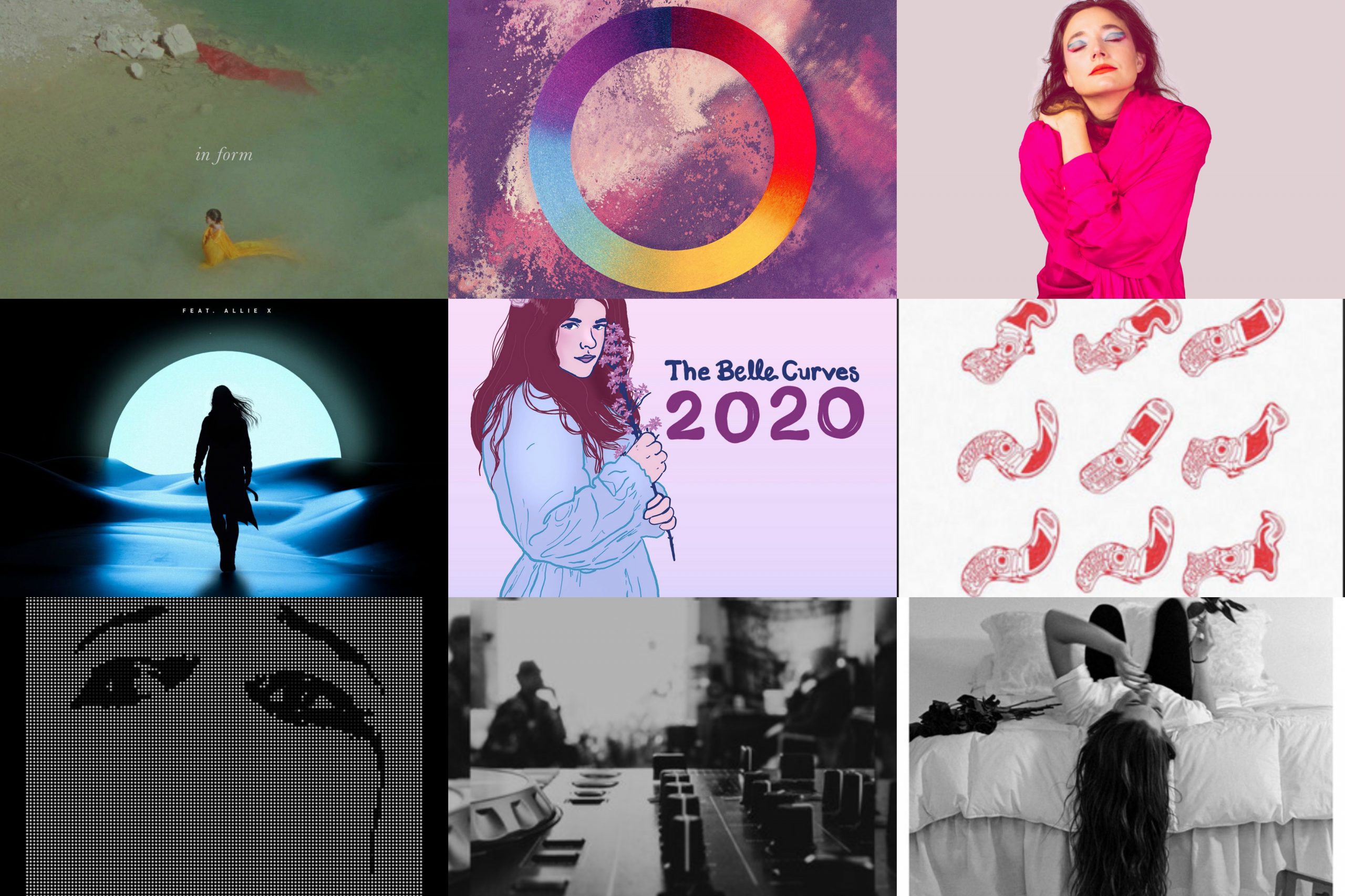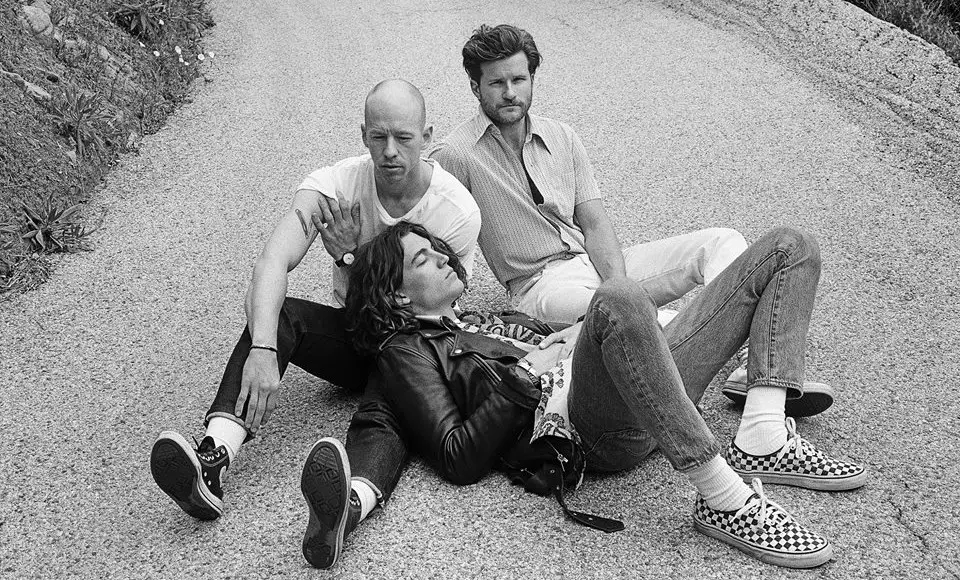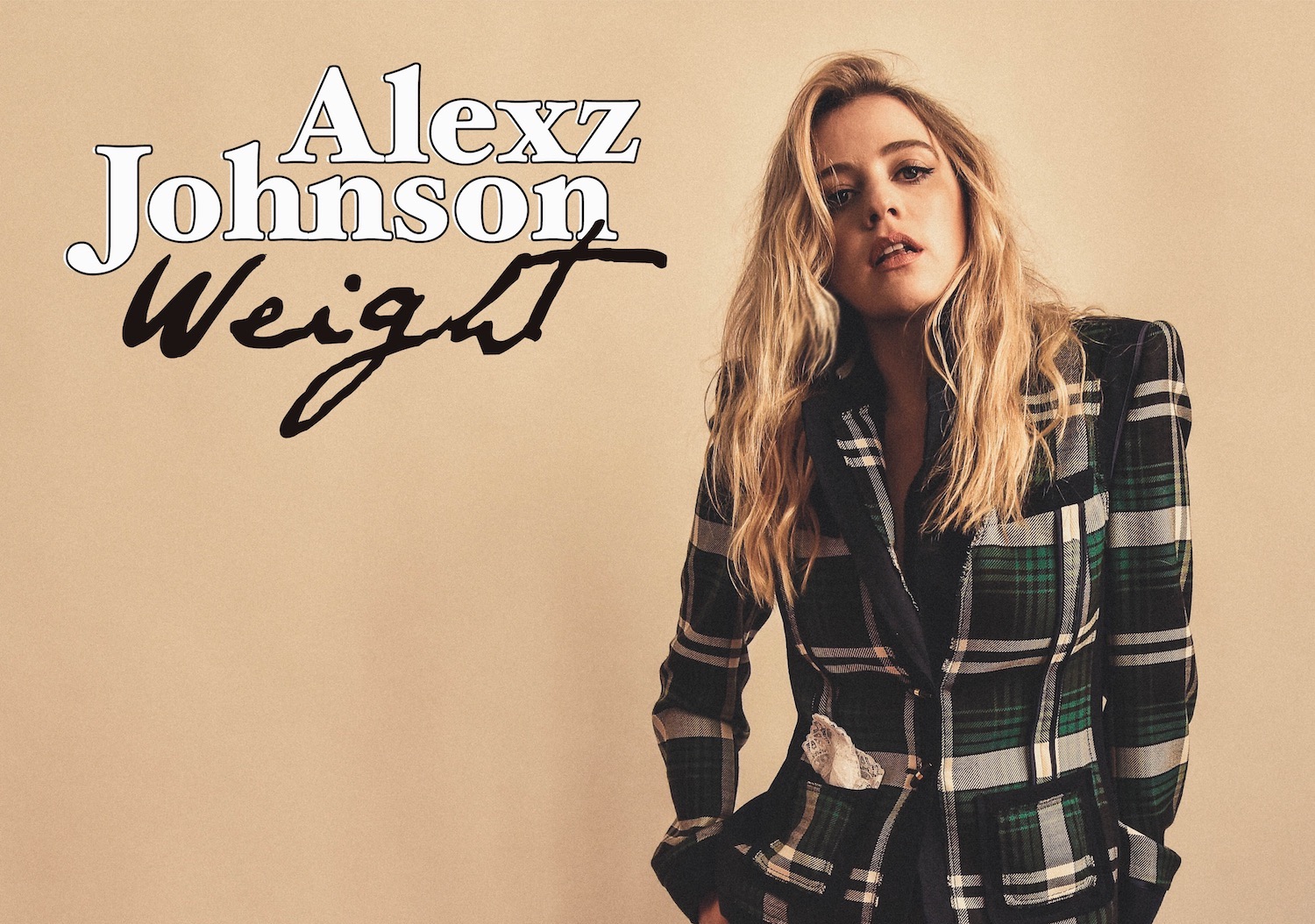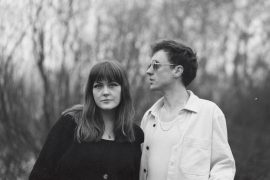Rock phenomenon Angie McMahon talks to Atwood Magazine about processing raw emotions through music, the challenges of a debut album, finding balance, and the songs and stories driving her inimitable Salt.
Stream: ‘Salt’ – Angie McMahon
It’s hard to define the power and intimacy that come across in Angie McMahon’s singular music without simply experiencing it for oneself. A longtime Atwood Magazine artist-to-watch and Editor’s Pick, the Australian phenomenon delivers a controlled implosion in her dynamic, charged music – channeling intense emotions, reflections, and ideas through a volatile array of driving indie rock and moving singer/songwriter music.
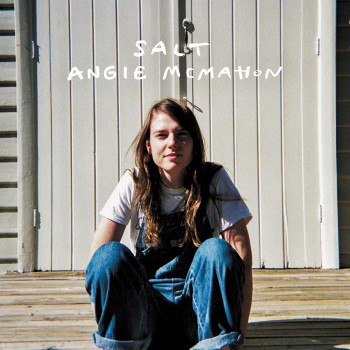
Having introduced herself nearly two years ago with the churning “Slow Mover,” McMahon’s recently released debut album fulfills on the promise and potential of her initial output. Out July 26, 2019 via Dualtone Records, Salt is a seismic outpouring spanning the full dynamic spectrum, the likes of which is seldom felt on record – especially in a debut.
Together with her band, McMahon captures the true depths of human experience and emotion; whether it’s the pain of heartbreak in “Missing Me” or the empowerment of womanhood in “And I Am a Woman,” Salt‘s songs come to life through McMahon’s savage, unrelenting guitar performances and her unparalleled, unapologetic singing.
“I just go through so many moods and so many emotions, and my music just reflects that,” McMahon says of her work. “Songwriting is just how I am able to connect with that deeper part of myself and see what I’m actually going through.”
To speak of Angie McMahon’s music is to delve into an intimate world of contrasts, where opposites do more than just attract: They bend and break against one another. Triumph and failure, love and loss coexist in a beautiful musical manifestation of life on record.
Yet it’s not necessarily Angie McMahon’s individual story we end up experiencing, when we hear her music; rather, it’s our own. “What I want to take away when I listen to a record is a feeling of satisfaction with being understood or related to,” she explains. “Someone said something really nice about one of my songs at one point, and I have held on to the statement because I feel this about songs in general: “It gives you the space to access your emotions when you hear a great record or a great song.” And I think that’s what I want for myself when I listen to music, and I think that’s what I want for other people when they listen to my music.”
That’s my favorite thing about music, because that’s what it does: It gives you the ability to access your own story.
Atwood Magazine recently spoke to Angie McMahon during her first tour stop in New York City. Sitting down at Rockwood Music Hall, she spoke about processing raw emotions through music, the challenges of a debut album, finding balance, and the songs and stories driving her inimitable Salt. Get to know one of 2019’s most charming, exciting, genuine, and breathtakingly raw singer/songwriters through our exclusive interview!
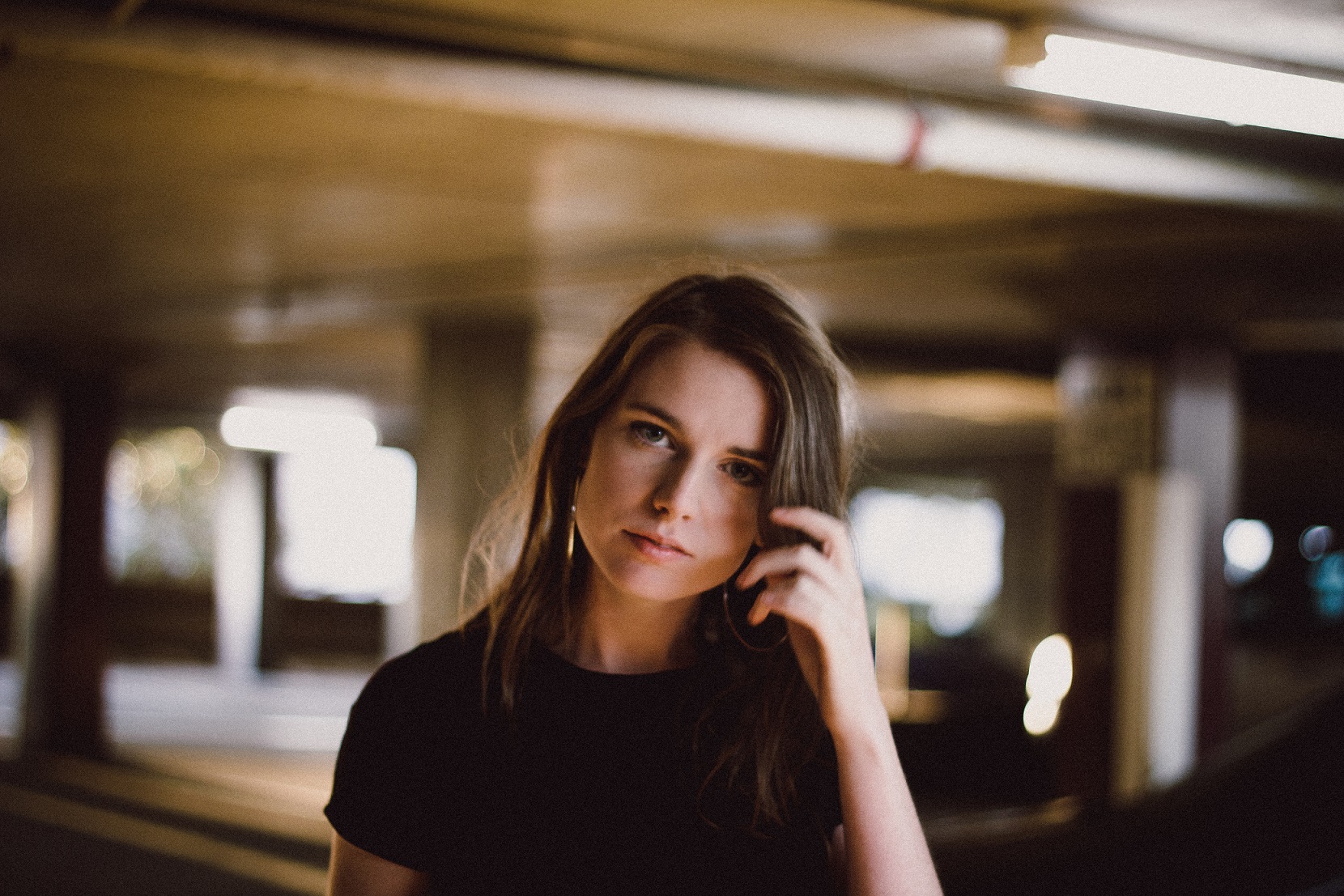
A CONVERSATION WITH ANGIE MCMAHON
Atwood Magazine: Congratulations, first of all on your debut album release! How does it feel to finally have Salt out in the world?
Angie McMahon: It’s really nice. It’s a big relief actually. It’s just like a clean slate in my head. It took us quite awhile to make the record and then figure out how we were going to release it. The process seemed like a long one, and the feeling of having it at just makes me feel like I can start working on the next thing with more of an open mind, and more space to think about other things.
Like a clean slate.
McMahon: Yeah. It’s like handing the weight off to anyone who wants it, and I’m done with it!
The debut album is such an important record for an artist to make, and such a big place for anybody to start. How do you feel you've changed over the process of making this album?
McMahon: I’ve learned a lot. I never knew how to make a record, save for singing songs. I never knew what went into it, and there’s so many little things: There’s big things and little things and so many decisions to make. The decision-making process was really good for me in terms of just building my confidence and following my instincts, and trusting the instinct to be simple and pure with every everything. Like with the cover artwork, it was just a simple photo – and with the production, it was just simple and pure and it was about the songs. All of this stuff, it was quite instinctive.
I recognize that so much of your music can be made with yourself and your electric guitar and an amp. At the same time, I feel like the words “simple” and “pure” are never ones that I would use to describe your music.
McMahon: Oh really? Yeah, that’s cool. I mean, I guess that was how I was feeling in terms of recording the songs, like in terms of keeping them – but yeah, I guess I used the word simple in the way that we didn’t overproduce anything. That’s because I felt like the songs had enough life of their own and I wanted the first record just to be setting a foundation for the type of music that I want to put out, which is very emotional and layered hopefully. I’m starting to realize that it’s more complex as well, because it’s very personal. I find something different in the songs every time I go back to them, which is nice.
I find something different in the songs every time I go back to them.
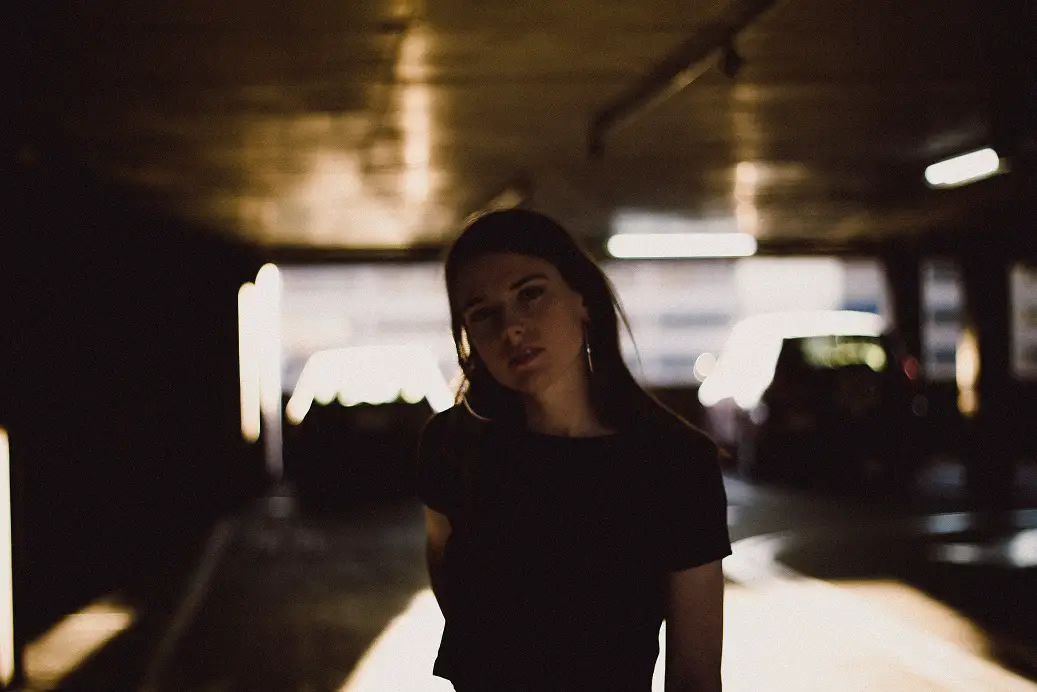
How did you come up with the name 'Salt'?
McMahon: It was always the word that I wanted to be the title. I wasn’t entirely sure why. Maybe initially it was like salty tears, like that kind of idea. It’s a metaphor, I suppose, for the songs being what is left over after the experiences that I’ve had; salt is what remains after water evaporates, and there’s this thing that is so crucial to life in the way that it can be cleansing. Like, you dive into the ocean and you feel so cleansed, but it’s also like a terrifying thing sometimes. Salt can sting you and it can kill earth, but it also brings out taste in things. I guess it felt like the balance and the complexity that I feel I was trying to bring out in the songs, you know, balancing the dark and the light in making music. It just felt like the right word.
I definitely understand that - sometimes it just speaks to you!
McMahon: The name came last; it was just sort of hovering in my head and I didn’t have a title. I was picking at lyrics through the record, but nothing stood out as much as just a simple word that was a metaphor for a bigger thing. The songs are a collection of my life experiences, and so that’s kind of a bigger thing than just, you know, here’s a record about heartbreak or whatever, which might’ve come across had it just been a lyric as the title.
When you made this album, was it a reflection of your live performances, or is the live show more of a reflection of the recordings?
McMahon: Ooh, I guess it depends on the song. It’s probably that the live show is more of a reflection of the recordings, because I think there’s an intimacy in some of the songs, you know the softer songs, that I can’t quite achieve in a live show just because you can’t always get that in a room. But I really try to bring intimacy into the live performances, and I really wanted to make some songs as well that were like big rock songs and would really work in a live setting. That was the first time that I had played with a band. You know, I pulled together my band because I had finished the songs and I wanted to be able to perform them and record them with a big sound.
Listening to the album, you can feel the intimacy between you and the microphone or the listener; there's barely any veil in-between all those steps. What song do you typically open with, and why?
McMahon: It changes. I try to change it because I don’t want to repeat the same thing over and over again, but we often open with “Soon.” It’s a nice way to open a set because it’s really gentle in the beginning, but by the time you get to the chorus, if I’m with the band particularly, it gets big. I like the feeling of capturing the audience and making them be quiet if they’re not quiet, just by starting with something really intimate, but then delivering something full band before too long.
When I listen to the album, I feel like “Play the Game” is kind of this introduction. There's this lone artist who is kind of spilling her guts in music, and then you hear “Soon” and it kind of raises the bar very fast and suddenly you've jettisoned off into space. It's the first explosive or volatile moment.
McMahon: Yeah, and that’s kind of the effect of doing “Soon” first in a set when we have a band. I have opened with “Play the Game” before as well, and I quite like that. It works better solo, I think.
You debuted in 2017 only two years ago with “Slow Mover.” Can you talk about the personal significance of that song? Does it still hold the same weight for you, that it did back then?
McMahon: It does in terms of having started my career for me. To me it was just a fun song to make. It wasn’t the most, I guess, revolutionary in terms of processing my feelings and getting my innermost self out – even though it is; it’s very personal! It felt more fun. It felt like the catchiest song I had written, and it felt me entering a new direction of being able to write something that wasn’t just completely introverted. The guitar riff was fun, and the chorus was loud. That was one of the first songs that I’ve ever written that was like that. And when I started performing it, people responded to it really well. So I thought that should be the first single.
What is the significance of fire in that song?
McMahon: It’s me trying to figure out how to say, “try and turn me on” without saying “try and turn me on.” And so I use the metaphor of fire. Also, I love the idea of fire: I have to resist putting it into songs all the time, because that song did well, you know, particularly in Australia where it kind of started me off… It would probably be easy for that to become like a bit of a gimmick, but I want to put fire in every single song because it’s just such a powerful image, you know? I love fire! I mean, maybe I should just put it in everything. Water is another one: I always want to write about water. It’s funny – when I’m songwriting, those things do come out automatically and I have to challenge myself just to be more interesting. I mean, even for myself just to find other words and images.
Friend, old friend, it’s 4 AM
What are we doing in the street?
I don’t want to buy fried chicken
I wish that I was going to sleep
And I don’t want to kiss you
Underneath that flashing sign
What’s the hurry? We’re not ready
We’ve got plenty of time
Maybe you will get married
Maybe fall in love
Could you make me fall asleep
When you’re holding me?
Try set me on fire
Try set me on fire
Try set me on
Even as a music writer, sometimes I fall back on the same words again and again. Anybody who religiously reads my pieces knows there's a certain vocabulary I pull from. But back to the album, they say that you can take your entire lifetime to make your first record. How old are some of the songs on here? Is everything kind of fresh from within recent years, or are some of these songs coming from a long time ago?
McMahon: None of them feel that fresh because we finished recording it a year ago. The album was finished mid-last year, and a full year before that, I had already finished all the songs. That’s when I pulled together my band and I wanted to be playing with them before we went into the recording studio. Having the music sound right with more people involved was really important to me. We didn’t start recording until I’d been playing with those guys for months. I already had finished all the songs, so the most recent songs… There were a couple which were written about two years ago, and there were some which were written… “Push” and “Soon” are the oldest songs. “Push” was written when I was 19, and I’m 25 now. I nearly didn’t put that one on the record ’cause I felt disconnected from it, but I do like the melody of it – and I do like to sing it, because it’s very raw and other people telling me that it’s their favorite one. So it’s on there.
If you're going to do it at any point in time, now is the time to do it.
McMahon: Exactly! The first record. That was something that I wrestled with a little bit because I was like, “Should I be putting more fresh things on there? Should I be challenging myself to make sure I’m writing more current and interesting things?” But it’s my first record and I did want to give these songs their space, and I want to make another record and another one after that. So I’lll just keep on songwriting.
And by the time your second record comes around, you're not going to be wanting to harken back to stuff that you made before your first record.
McMahon: Exactly. I’ve put it all out, and I have to be fresh now!
Like you said, it's a clean slate. Now you can go somewhere else. How do you feel you've grown in the past two years since you made that music?
McMahon: Hugely! I mean, it’s been a lot of life experience. I’m much better at it talking now even; myself, a couple of years ago, I think, was much more introverted and much more cautious. I’m still cautious in the way that I speak, but I’m more confident. Songs used to be very much the way that I would feel most confident to speak, which they still are, but now I’m having interviews all the time; I actually have to be able to put sentences together.
Also, business meetings! I’m running a business now with help, but it’s a whole functioning team full of people. I’m constantly learning so many things, and some of them aren’t really involved in music. It’s more about my morals and the money that we’re spending and stuff. In that sense, I feel like it’s helped me grow up a lot, and also my relationships with people, whether it’s my band or my team or my family or the people whom I’m traveling away from at home… Those relationships have become much more adult in terms of me being able to communicate better and more openly and having all of this life experience that helps me be a better person I think, hopefully. So, yeah, it’s been a lot of growth.

It's a complex web of work and play combining.
McMahon: It is infinitely complex!
I can only imagine, but it's brought you all the way to New York City. You're all the way around the world from Australia.
McMahon: It’s the Internet. It’s mad – I mean, I wrote these songs in my room in Melbourne, and they are exactly what they were when I wrote them and now they’ve brought me to New York, which, you know, I’ve always wanted to come here.
Your music is one of the very few rock singer/songwriter types that feels particularly unique to itself, for me. Can you talk about your musical inspirations? What music gets you going and what do you love most about your sound? What music “sets you on fire?”
McMahon: Well probably the things that I love about my sound would be the things that I feel like maybe inspire feeling, whether that’s in me or in other people. That’s what happens to me with my favorite artists as well. Bon Iver is one who achieves that intimacy in these beautiful melodies and beautiful singing, and all of those things are things that I try and achieve as well. I love listening to those things; I think he’s a wonderful artist. Bruce Springsteen is a really favorite singer of mine and storyteller and performer. k.d. lang is one of my favorite singers; her voice is so deep and emotive, and she’s a big inspiration for me singing. Who else? There’s so many… Fleetwood Mac, Tom Waits, Angel Olsen. There’s a lot of them.
I love the contrast of Fleetwood Mac against Tom Waits. Kind of the rough with the more polished.
McMahon: Yeah, totally. But they just have great songs. I mean, I am always looking for great songs.
So what about when you're making a song, what for you makes it feel like a great song?
McMahon: Sometimes I just don’t know if it’s a great song until much later on. I wouldn’t say I really think they’re great songs often. Sometimes it just feels right. Sometimes it is about expressing what you’re trying to express at the time, and saying it and singing it in a way that feels not so much unique, as just true and authentic to what the feeling is. I might write something that is exactly what I was trying to write, but then look back on it and just be like, “That’s a terrible song; I don’t need to release that.” And that’s also fine because this is part of the process. And then sometimes I get scared, if I write something that I feel like is good because then you think maybe you stole it from something else, like, “How did I come up with that melody? Where did they come from?”.
That reminds me of the story of Paul McCartney writing “Hey Jude,” where he apparently dreamed it up and put down the chords the next morning. And then went around to everybody and said, “Have you heard a song like this before?” Everybody said, “No, no, Paul, we haven't heard a song like this.” But he was convinced he had heard it somewhere else!
McMahon: Isn’t that funny.
It's incredible. So why do you open your album with the song, “Play the Game”?
McMahon: There’s this album by Big Thief called ‘Masterpiece’? The intimacy of the first song always gets me, and I think I was inspired by that record. We open and close the album with really intimate songs I think as kind of bookends to let the journey go to the loudest parts somewhere in the middle. I really did want either end of it to tell the story that it’s an intimate record, and I think that was why; it feels like a bit of a lullaby, that song. I just felt like a nice, gentle entry.
We already talked about it a bit: I love to volatility within “Soon.” Can you talk about having a song like that stay fresh? How do you keep songs like that feel lively and in the moment today, tomorrow, and six months from now?
McMahon: That’s really relevant, because I do play them quite often. “Soon” in particular is a good one for that, because it has a bit of free time. I push and pool the timing, particularly in the verses, and my band are used to that as well. So we have kind of rehearsed in a way that there’s a lot of space for that. And so, I feel like I can be creative even if it’s in tiny ways. I feel like I’m able to be creative in performing that song and some of the other songs as well.
So like for example, with “Slow Mover,” I don’t really feel like I can do that. The timing is exactly what it is and the dynamics are exactly where they’re meant to be. With that one, there’s a little bit less flexibility. With “Soon” and with some of the others, it feels like I can be more creative and loose.
How do you strive to balance the harder, edgier moments of your music with that softer folk sound? Do you seek balance, or do you just let whatever happens, happen?
McMahon: I do try and seek balance, and it comes back to the salt metaphor again. If you think about having too much salt in food and it’s not nice and not enough, then it’s not nice. I’m really passionate about dynamics just because again, the way they make me feel in other people’s differences. And so I was always wanting to be really conscious of that. I find too much loudness abrasive. I’ve never been a fan of really loud music without the dynamic spectrum kind of coming in and out. I guess I’m just sensitive to yelling, and sometimes it seems like that, you know – whether it’s the fact that a lot of commercial radio like pop is compressed to that same decibel. You might go and see a set by a band who are very good, but it might be at a festival and they feel like they have to play all loud songs and so it’s just like this full, high energy. I guess it doesn’t feel very realistic to me; I just go through so many moods and so many emotions, and my music just reflects that.
So your music is a reflection of life and your life experience.
McMahon: Yeah, definitely. It’s a reflection of myself. That’s important to me because that’s just why I’ve always done it; it’s because it’s the way that I show myself.

You mentioned earlier that for you, songwriting has to do with processing your feelings. Is writing music and making songs a cathartic experience?
McMahon: Yeah, absolutely. For a long time, it was the only way that I knew how to express my feelings, and still I feel like writing is the best way for me to do that: Whether it’s songwriting, or just simply general writing, which often will turn into songs later. I’ll go back into a journal entry and look for a song. It’s another thing that I’ve learned in the last couple of years because I’ve been really busy with touring; there hasn’t been that much time for songwriting, and there have been serious periods throughout this time where I felt so disconnected from myself and unable to process — you know, just being really caught up in the motion of what’s going on, yet completely ungrounded — and songwriting is just how I am able to connect with that deeper part of myself and see what I’m actually going through, and feel like I’m understanding; feel like I’m keeping in touch with myself, because there’s so much external stimulation… So much happening on my phone and there’s so much happening in the touring world and in the world in general – you only have to open the newspaper! Songwriting is just crucial for my sanity, I think.
I feel like as a touring artist, especially the more and more you do of that, your life becomes a bit transient; you're never in one place for one big amount of time.
McMahon: And I’m not sure if that suits me. I’m still trying to figure it out, but I think I do need significant periods of being still as well.
I liked the way that you said that – “being still.” I think it's really important for everybody.
McMahon: Yeah, it totally is. It’s a conversation I had, and I have it all the time with my manager, Charlotte. We had significant conversations about it in the beginning of working together, because we wanted to be coming at the business plan in a way that was healthy. Like, “What are you capable of doing with your body?” And like, “How long are you actually wanting to be away from home?” There are people who, in our peripheral, might have a successful song or album, and just tour nonstop for six or eight months. And she and I would look those tour posters together and I would just open up and say, “I don’t think I could do that.” Then she’d say, “I don’t think that you should. And I don’t think you should have to.” And in some ways you have to, I mean, obviously you have to make money – and you have to be able to support the momentum. But we tried to be really healthy in that approach, and we’re still just figuring out what we can say yes or no to, based on health and being able to take breaks.
I'm sure for you, talking about being home and being in New York City, it's a very surreal thing to be talking about, because there's that distance.
McMahon: Places can feel like home when you visit them a couple of times, like London. I have been to London quite a few times and spent a bit more time there, so it’s maybe a second time. But it doesn’t have my dogs and my family.
So if I haven't already called your music, a ”controlled implosion” or “outpouring,” that's what it always feels like to me. Personally, I love the more volatile aspects of your music - those big aspects of “Missing Me” where you just grow into this huge tense ball of energy that doesn't know where to go, so it just kind of floods out. Does that tension come from within?
McMahon: Yeah, I mean that was my first real heartbreak, that song. I was writing the song as it was happening. And so that’s exactly what it was. It was just me not ever having experienced that before, and really needing somewhere to put it. I wasn’t going to throw all that at a person, and I couldn’t put it anywhere else except into a song. And that felt like the most productive and cathartic thing to do. So, it was an ex; it was also just an experimentation with my own songwriting of how far I could go, like how much I could yell. With producing the record, it was the same: Producing that song was really fun, figuring out how to make it more energetic and more wild. It was the first song that I did with Alex O’Gorman, who did most of the record (he’s also my bass player). We didn’t do “Slow Mover” together… He has this great little studio room in Melbourne with exposed brick walls, and we were in there in nighttime and I think I even put sunglasses on. It was like pink lighting, and he has these like Flamingo lamps. It was like mood lighting, right? And there was this tiny little cable that we were making sounds on. We had already done the live band recording and we were adding extra energy, and it was really fun. It was such a mood!
McMahon: I guess it doesn’t count because we did release it, but “And I Am a Woman” was the one we released just before the record came out, which I was really happy about because that one is the most exciting to me and I did want to put a bit of a spotlight on it. I didn’t want it to just be an album track. It was one of the ones that was written most recently, and it’s the one that feels most relevant to me at the minute. I feel like it’s an important one to sing just because of the time that we’re in. The whole concept resonates with me still, and I want to keep writing about those feelings. And so that one was really exciting to release.
Possibly one of your most important songs on this record is “And I Am a Woman.” How did that song come to life? What inspired that track for you?
McMahon: I was so happy that it came because like I was saying before, like the difficulty that I often have just expressing myself in conversation was particularly relevant — and it is relevant still when I’m angry, and when it has to do with explaining my experience to the opposite sex if they are misunderstanding it. It’s one of these big gaps that exists in our society, I think; particularly in like, you know, relationships with people my own age… Still realizing and slowly realizing tiny things that are actually big things, and normalized things that actually shouldn’t be normalized. It can be so frustrating to realize those things and try to explain them, and not know how to explain them, or to try to express them, but not know how to keep a lid on your fury. And so, that particular moment was kind of a dinner date that was me and this guy who…
It was a conversation that we were having over the course of an evening about how it feels to be a woman in an unsafe gig space, like at a festival or in a crowded room where there’s those hectic violent whirlpools of people, or a man who gropes you… Our experience of those spaces was just so different, and the fragility that I was trying to express… And my feeling entitled to, you know, having hopefully a different type of future where those spaces are not so normalized. I’m saying words and sentences now that I was just unable to express at that time. I was like two years younger and I was just like on a date with this guy. And I was just like, “What the fuck do you mean? You don’t understand what I’m saying? The world shouldn’t be this way. Why should I have to feel unsafe in my body and why should women have to feel unsafe in public?“
It was a really frustrating experience that thankfully led me to write a song that was my first entry into that type of songwriting, where it was just slightly more political and slightly more real. It was just raw; you can’t cover everything about that topic in one song. And so when I went to write it, I had the chorus lyric written in the middle of a mind map, and then I was just kind of drawing all these branches off. “You are in my home now and I am a woman.” It was also this kind of tongue-in-cheek thing where, one thing that this person said — and I don’t want to like demonize him, cause he’s just like a boy — but he said, “Boys will be boys,” which is one of my least favorite sayings. But it was like, my end of the sentence is: “Boys will be boys, and I am a woman.” Women will be women. Why can’t I be a part of safety? So the song was challenging to write and had all of these things written around the page, and I don’t think I ended up really using any of them. I think it was this narrative that kind of poured out of me around this central like chorus line. But there’s much more to say, I think; I’m proud of it. It was a really cathartic song to write, and it’s cathartic to sing.
Boys will be boys, and I am a woman
It's completely your capstone at the end of the record; it is clearly what you're trying to convey before you kind of fade out and say goodnight. I'm starting to understand your lyrics even better from our conversation:
I want to get dirty now that I’ve got clean
And when I am bleeding I don’t feel like speaking
I’m not your teacher, I am little and I am learning
And have been burning to remind you
That we all live right beside this door
And what we keep it open for
You are in my home now
And I am a woman
I think I understand it so much better now that you've described your experience, and why that song had to exist for you.
McMahon: It’s interesting, because you’re not the first person to say that you understand it better after I talk about it. When I sing the song live, I always try to say at least something, even if I don’t have the energy to tell the story; say at least something, because it’s not a complete telling of all of the complexities of being a woman. It’s just a perspective on this feeling. And so sometimes I do feel it needs a backstory to really hit home. I hope it’s just the beginning of a longer conversation, and a bigger conversation. It has its spot on the record and it was a real transition into more mature songwriting for me. It was a development.
So finishing up, if Salt had any sort of thesis statement, what do you think it would be? For me, I would say it is a raw expression of vulnerability and tension in a phase of maturity.
McMahon: I mean, that’s really nice! Maybe I just can’t say something like that about my own record. I think if I had a thesis statement for it, it would probably be that lyric: “You are in my home now.” Because you’re inside my head. That’s my story, so far!
It's really fun to meet you because your music has so much energy and tends to be on the darker side of life; you are by no means on the dark side of life!
McMahon: Sometimes I am! You can switch it on.
That's nice to kind of contrast art versus artist. What do you hope for listeners to take away from your music?
McMahon: Because I’m a music fan, what I want to take away when I listen to a record is a feeling of satisfaction with being understood or related to. Someone said something really nice about one of my songs at one point, and I have held on to the statement because I feel this about songs in general: “It gives you the space to access your emotions when you hear a great record or a great song.” And I think that’s what I want for myself when I listen to music, and I think that’s what I want for other people when they listen to my music.
That’s my favorite thing about music, because that’s what it does: It gives you the ability to access your own story. You know when you listen to a great song, and you’re just like, “I didn’t even realize that I felt that thing, but that’s exactly how I feel?” That’s what I want.
Who else should I be listening to right now? Who's on your playlist?
McMahon: Okay:
- Ainslie Wills – she’s also managed by my manager, and she’s one of my favorite musicians. She’s also going to put out a record soon.
- Leif Vollebekk; he’s always putting out a record in November, but his last record is one of my favorites.
- Big Thief are my favorite band.
- There’s an artist called Merpire from Australia, who’s really great: She’s like chosen her name from Mermaid and Vampire: Merpire. She’s a great artist; she doesn’t have a record out yet, but she’s got a bunch of singles, and I think she’s got an EP, and she’s really cool.
- Oh Pep! is another one: They’re one of my favorite bands; they have a record that they put out at the end of last year, and then they have another record that they put out a couple years earlier on Dual Tone, and it’s amazing songwriting.
— —
:: stream/purchase Salt here ::
— — — —
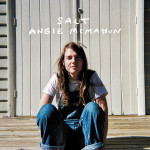
Connect to Angie McMahon on
Facebook, Twitter, Instagram
Discover new music on Atwood Magazine
📸 © Paige Clark
Salt
an album by Angie McMahon




